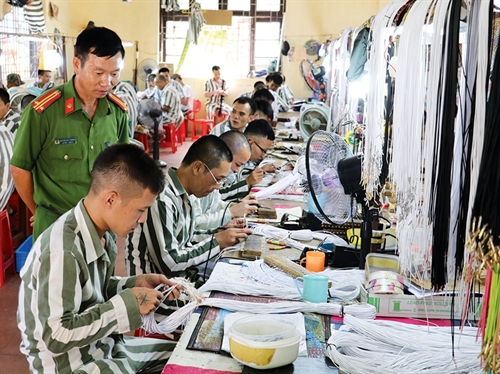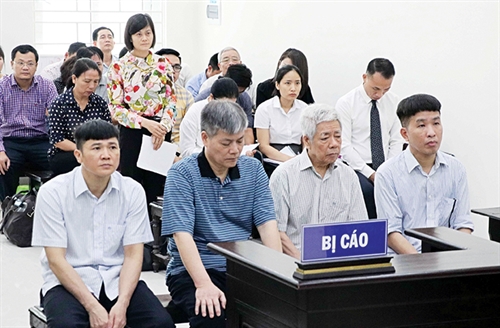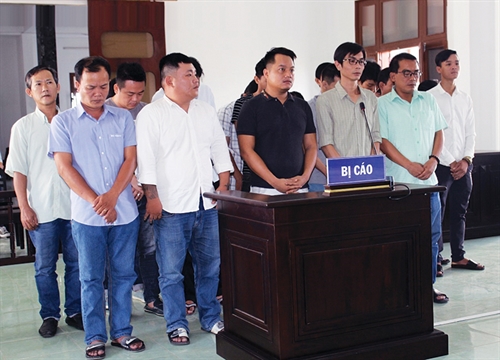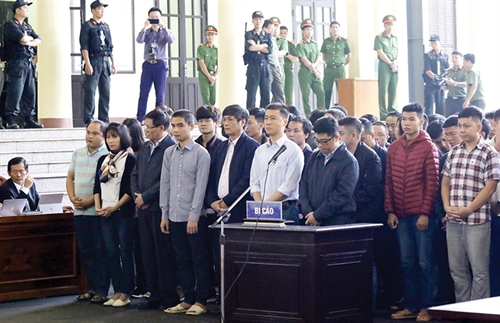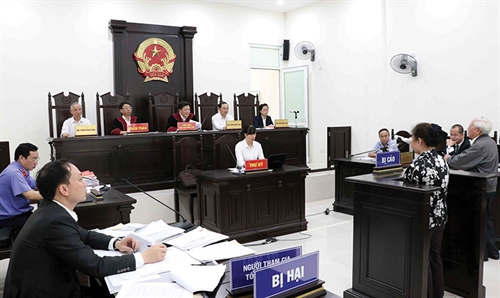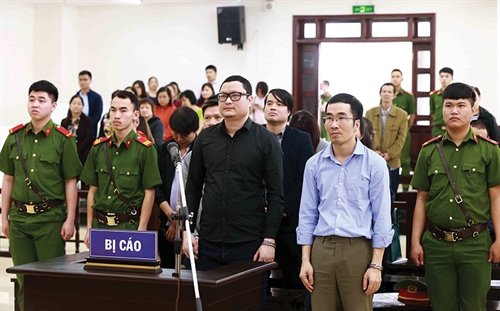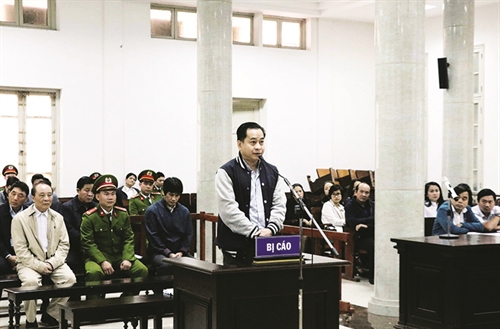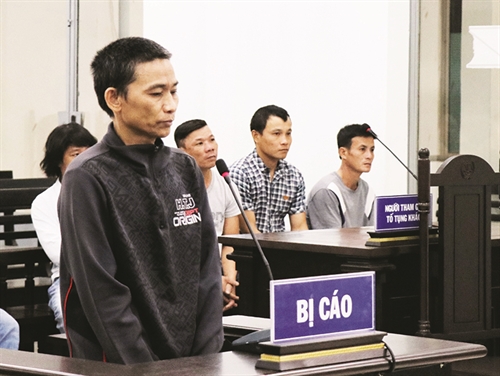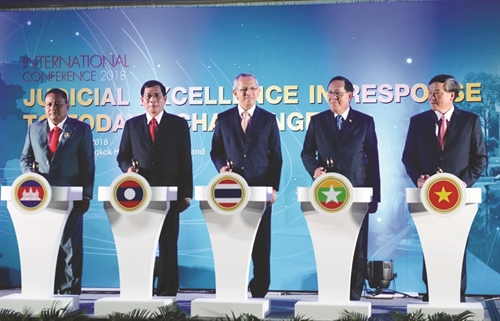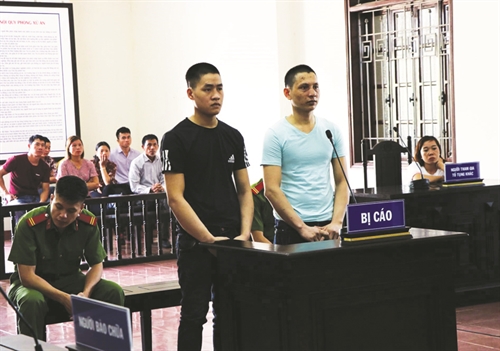Nguyen Van Dong
Military Court of Military Zone 4
Vietnam’s 2013 Constitution (the Constitution) provides for the first time human rights and citizens’ rights in Chapter II with significant progress in the recognition and exercise of these rights as well as specific cases where these rights may be limited[1].
In criminal proceedings, the exercise of the Constitution-enshrined human rights[2] requires an effective legal mechanism, especially in the context that Vietnam is building a socialist law-ruled state.
Human rights to be guaranteed in criminal proceedings
First, the right to freedom from groundless arrest and detention: The 2015 Criminal Procedure Code (the Code) has concretized the constitutional rights to inviolability of body and legal protection of life, health, honor, dignity and property.[3]
Second, the right to protection from torture and cruel, inhuman or degrading treatment or punishment in the spirit of the 1984 United Nations Convention against Torture and Other Cruel, Inhuman or Degrading Treatment or Punishment. Articles 10, 11 and 13 of the Code provide legal guarantee for this right as it is regarded as the most vulnerable in criminal proceedings, especially in the investigation stage when coercion and corporal punishment are in some cases considered the last resort to get statements of criminally charged persons.
Third, the right to fair and public hearing by an independent and impartial tribunal: Everyone is entitled in full equality to a fair and public hearing by an independent and impartial tribunal, in the guarantee of his rights and obligations and assessment of any criminal charge against him[4] and to a trial without undue delay[5]. Recognizing this fundamental right, the court must promptly conduct trial within the time limit prescribed by law, ensuring fairness. Judges must conduct trial in public and every person is entitled to attend the trial, unless otherwise prescribed in this Code. In special cases in which state secrets need to be kept or fine national traditions and customs to be preserved, persons aged under 18 to be protected or personal life secrets of involved parties to be kept at their reasonable request, the court may conduct trial behind closed doors but must pronounce judgments publicly[6]. However, it should be noted that only rulings in the judgments are required to be pronounced, but not their whole contents.
In order to protect and guarantee human rights in criminal proceedings, other rights of proceeding participants must also be recognized, such as the rights to defense counsel, to use spoken and written language, to protection of honor, reputation, dignity and property, to inviolability of lawful residence, private life, personal secrets, safety and privacy of correspondence, telephone conversations, telegrams, to compensation for damage, to adversarial process, and to lodge complaints and denunciations.
Particularly, the right to defense counsel must be exercised and guaranteed in all legal proceedings or can be in essence regarded as a special right in the criminal justice not just in criminal proceedings. In fact, the criminal procedure law provides the formal and procedural guarantee for the exercise and protection of this right in litigation proceedings, especially once the adversarial principle has been enshrined in the Constitution and a standard procedural process is considered an essential factor in the protection of human rights in criminal proceedings.
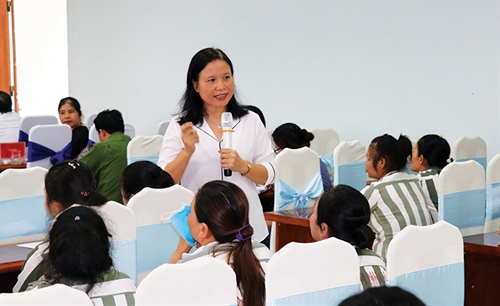 |
| Ho Thi Quy, an official from the Vietnam Women Union, talks with female prisoners about their reintegration opportunities at a conference in Gia Lai detention camp, Gia Lai province__Photo: Hoai Nam/VNA |
Persons whose human rights are guaranteed in criminal proceedings
The Constitution’s provisions on human rights should be first of all implemented in favor of the following parties:
The first group consists of criminally charged persons, including arrestees, persons held in custody, the accused and defendants, who are guaranteed by the Code with specific procedural rights, including the rights to defense counsel (self-representation or hiring of legal counsels to provide defense) and to participate in the adversarial process (proving, cross-questioning, confrontation, argument), and to file complaints and denunciations against illegal acts of proceeding-conducting persons. These rights of criminally charged persons correspond to the obligations of proceeding-conducting persons, especially in applying deterrent measures and conducting court hearings.
Though, in theory, everyone is equal before law and court and entitled to fair trial, persons in different circumstances and conditions should be subject to different procedural provisions. The Code prescribes specific procedures applicable to criminally charged persons who are aged under 18, limitations on the application of deterrent measures, custody and temporary detention, compulsory presence of representatives in litigation proceedings and people’s assessors who are youth union leaders or teachers in trial panels, etc.
As deterrent measures are likely to restrict freedom rights of suspects, the accused and defendants, the State must prevent abuse of powers of proceeding-conducting bodies in violation of human rights. Thus, the Code requires these bodies to refrain from applying deterrent and coercive measures in a spontaneous and abusive manner. It is a universal trend today that the criminal procedure law encourages the application of “soft” measures such as bail and ban on travel out of residence instead of custody and detention. In addition, penalties are also imposed to deter proceeding-conducting persons from taking acts of excessively or illegally arresting or holding in custody persons.
The second group includes individual victims who directly suffer physical, spiritual or property damage or agencies or organizations that suffer property or reputation damage caused or threatened to be caused by offenses. Under the criminal procedure law, victims have the rights to request proceeding-conducting bodies to protect their human rights, to present their claims, documents and objects to protect their lawful rights and interests, to participate and supervise activities of these bodies, and to file complaints and appeals against procedural decisions, rulings and judgments of investigative bodies, procuracies and courts. Particularly, victims of sexual crimes are entitled to protection of their personal safety, honor, dignity, privacy and secrets in proceedings and behind-closed-doors trial.
The third group includes witnesses whose duty is to make truthful statements about facts of criminal cases though this duty might place themselves and their families in danger of being threatened by criminals. In return, proceeding-conducting bodies that summon them to make statements at court hearings are obliged to protect their and their families’ life, health, honor, dignity, property and other lawful rights and interests for the ultimate purpose of verifying and clarifying facts of criminal cases and strictly handling offenders.
Limitations in the protection of human rights in criminal proceedings
The constitutional right to defense counsel of persons held in custody, the accused and defendants has not been fully guaranteed and properly exercised in criminal proceedings or even breached in various ways. Despite the enactment of the 2006 Law on Lawyers and development of the pool of lawyers, in reality the exercise of this right encounters not a few limitations, including the lack of an effective mechanism for defense counsels to provide defense.
The procedures for handling juvenile offenders, especially those for ensuring their interests during criminal proceedings, remain insufficient or have not yet been properly and fully implemented. For example, though Article 415 of the Code stipulates: “Persons conducting the criminal proceedings in cases involving persons aged under 18 must have been trained or have experiences in investigating, prosecuting or adjudicating cases involving persons aged under 18, and have necessary knowledge about the psychology and education of persons aged under 18”, in reality most investigation bodies, procuracies and courts have no specialized staff to conduct proceedings involving minors.
The numbers of criminal cases that remain unsettled beyond the law-prescribed time limit and judgments that need to be modified or quashed are still high despite great efforts of the court system. In addition, most grounds for cassation trial, including legal and practical grounds, remain unclear, leading to the prolonged settlement of criminal cases and causing material and mental harms to defendants.
Unjust arrest, detention, prosecution and trial are still found in many criminal cases. Such deterrent measures as arrest, custody and detention which help proceeding-conducting bodies effectively fight crime and settle criminal cases must be resolutely and promptly taken. Nevertheless, in no circumstance can these measures be taken in a spontaneous and improper manner to infringe upon lawful rights and interests of the innocent[7]. In reality, in some cases criminal charges are laid even in the absence of decisions to initiate criminal cases against persons held in custody.
Recommendations to better guarantee human rights in criminal proceedings
Firstly, theoretical studies of human rights, particularly human rights as well as conditions for effectively guaranteeing these rights in criminal proceedings in Vietnam, should be further promoted in the spirit of the 2013 Constitution.
Secondly, in order to avoid injustice against the innocent during the settlement of criminal cases, provisions fully recognizing human rights based on international standards on human rights and expanding rights for criminally charged persons to help them protect their own human rights, such as rights to remain silent and to refuse to give evidence against themselves, should be added.
Thirdly, an effective mechanism to ensure the practical exercise of the rights of criminally charged persons, such as rights to defense counsel, collect and provide defending evidences, should be established. Therefore, the legal framework on judicial assistance should be further improved.
Fourthly, persons infringing upon human rights in criminal proceedings must be severely punished. In other words, the responsibility of proceeding-conducting bodies and persons for failure to perform or properly perform their obligations should be defined more clearly[8].
Fifthly, the criminal procedure law should establish a more specific and effective mechanism for protecting whistleblowers, witnesses and expert witnesses, preventing revenge upon and threats against them, thus strengthening the people’s trust in law enforcement bodies and encouraging them to participate more actively in crime prevention and fight. Vietnam should learn from developed countries’ witness protection programs.
Finally, awareness of parties to criminal procedure relations about human rights should be improved. First of all, investigative officers, procurators and judges should be provided with adequate knowledge about human rights so that they must think twice before taking any acts that might affect human rights of criminally charged persons. Meanwhile, criminally charged persons should also be provided with better access to legal aid in order to exercise their right to defense counsel and self-protect their human rights.-
